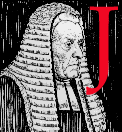
ames begins his review by telling his American reader that “Mr. Hardy’s novel came into the world under brilliant auspices—such as the declaration by the London Spectator that either George Eliot had written it or George Eliot had found her match” (1043), and he proceeds to explain that enthusiastically favorable judgment by quoting examples of Hardy’s imitations of both Eliot’s humorous and his serious manners. According to James, “The author of ‘Silas Marner’ has won no small part of her fame by her remarkable faculty as a reporter of ale-house and kitchen-fire conversations among simple-minded rustics.” Hardy, James tells us, “has also made a great effort in this direction,” and he quotes “a specimen — a particularly favorable specimen — of his success,” admitting “this is extremely clever, and the author has evidently read to good purpose the low-life chapters in George Eliot’s novels; he has caught very happily her trick of seeming to humor benignantly her queer people and look down at them front the heights of analytic omniscience” (1044).
Unfortunately, as the review proceeds to explain, that passage exemplifies “cleverness which is only cleverness” and the difference “between first-rate talent and those inferior grades which range from second-rate downward” (1045).
Mr. Hardy puts his figures through a variety of comical movements; he fills their mouths with quaint turns of speech; he baptizes them with odd names (“Joseph Poorgrass” for a bashful, easily-snubbed Dissenter is excellent); he pulls the wires, in short, and produces a vast deal of sound and commotion; and his novel, at a cursory glance, has a rather promising air of life and warmth. But . . . it has a fatal lack of magic. We have found it hard to read, but its shortcomings are easier to summarize than to encounter in order. Mr. Hardy’s novel is very long, but his subject is very short and simple, and the work has been distended to its rather formidable dimensions by the infusion of a large amount of conversational and descriptive padding and the use of an ingeniously verbose and redundant style. It is inordinately diffuse, and, as a piece of narrative, singularly inartistic. The author has little sense of proportion, and almost none of composition. [1045]
In fact, says James, “‘Far from the Madding Crowd’ gives us an uncomfortable sense of being a simple ‘tale,’ pulled and stretched to make the conventional three volumes,” and this observation leads him to complain about the length of nineteenth-century novels, particularly English ones, which are subject to the tyranny of the “conventional three volumes. . . . Almost all novels greatly too long, and the being too long becomes with each elapsing year a more serious offence.” As an explanation for the length of contemporary Nobles James describes parties method of describing his characters and their possessions. For example, “Mr. Hardy begins with a detailed description of his hero’s smile, and proceeds thence to give a voluminous account of his large silver watch. . . . We confess, that as a hint of the pace the pace at which the author proposed to proceed, his treatment of these facts produced upon us a deterring and depress effect” (1046).
James finds Hardy's characterization, like his descriptions, to be part of the difficulty with the novel, although he does admit that Gabriel is well done: “The chief purpose of the book is, we suppose, to represent Gabriel’s dumb, devoted passion, his biding his time, his rendering unsuspected services to the woman who has scorned him, his integrity and simplicity and sturdy patience. In all this the tale is very fairly successful” (1048). Bathsheba, a character borrowed from one Charles Reade’s novels, is not. “She is a young lady of the inconsequential, wilful, mettlesome type which has lately become so much the fashion for heroines, and of which Mr. Charles Reade is in a manner the inventor But Mr. Hardy’s embodiment of it seems to us to lack reality; he puts her through the Charles Reade paces, but she remains alternately vague and coarse and seems always artificial.” James similarly criticizes “Farmer Boldwood [as] a shadow, and Sergeant Troy an elaborate stage figure” in This review with two war heavy blows: first, he tells us, “everything human in the book strikes us as factitious and insubstantial; the only things we believe in are the sheep and the dogs. But, as we say, Mr. Hardy has gone astray very cleverly, and his superficial novel is a really curious imitation of something better” (1048). In brief, George Elliot he isn't.
Bibliography
James, Henry. “[Review of] Far From the Madding Crowd” in Literary Criticism. New York: The Library of America, 1984. 1043-48. This essay originally appeared in the December 1874 Nation.
Last modified 25 April 2020